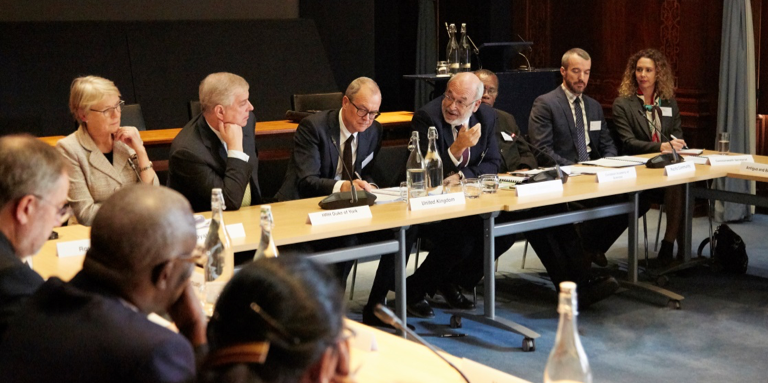The UKRI Policy Internships Scheme is open for applications until 13 August 2018. It provides an opportunity for PhD students, funded by research councils, to work on policy topics at a participating organisation.
Four interns tell us about their experiences of working for the Government Office for Science (GO-Science), which is where the GSE Profession team are located.
What is your PhD and why did you apply to the scheme?
Arianna: I’m a PhD student in the Astrophysics group at UCL, looking at Saturn’s magnetic field. I applied because I thought it would be good to get some ‘real-world’ working experience. I was interested in how government works, how it uses science and evidence to make policy decisions.
Isabel: I’m in my last year of a PhD in novel bacterial diagnostics at UCL, and hence have an interest in antimicrobial resistance (AMR). I applied because I wanted to learn about how science is used to make policy decisions, like those connected to AMR issues.
Jonathan: My PhD is in volcanology at the University of Oxford – similarly it relates to policy and I wanted to see what it looks like when science actually impacts policy.
Diarmaid: I'm based at the University of Leeds and my research looks at the potential for combining Bioenergy and Carbon Capture and Storage to remove carbon dioxide from the atmosphere while generating electricity – which obviously has implications for policy and I wanted the opportunity to see that happen.
There are many different placements available through the scheme, why did you choose GO-Science?
I: I wanted to be exposed to a broad range of areas and government departments, to get a taste for how science is used across government. GO-Science acts as the hub of science and scientists in government, working with departments, agencies and No. 10, so it was the perfect place to get that experience.
J: It provides an opportunity to live and work in central London. I was thinking about working in the Civil Service so the experience of working here for three months has been very helpful.

GO-Science covers a broad range of work, including developing and promoting the science and engineering profession in government, producing reports on important and pressing issues, and responding to emergencies.
What have you been involved in during your internship?
D: My time here has predominantly been spent on a project that looks at future trends in air quality, impacts to health and the environment.
J: My main job has been to organise a meeting of Commonwealth Scientific Advisers, the first of its kind. I've had the opportunity to see how science advisory networks work in different countries. I've also been in the team that responds to emergencies. I've enjoyed the urgency of the work, and it's exciting for me as a volcanologist to see how science is applied when responding to crises.
I: I’ve been looking at the interaction between government and academia – how research priorities are set by the Research Councils and UKRI. I’ve also written briefs for the Government Chief Scientific Adviser (GCSA), Dr Patrick Vallance, and I’m doing some work for the security team. There are lots of opportunities available for a variety of work, you just have to express interest!
A: My main work has been on an emerging technology project, identifying technologies that may have an impact on future public services, and that we think government departments should be made aware of.
Has working at GO-Science met your expectations? Has anything surprised you?
I: I was surprised how many interns there are in GO-Science, through this and other internship schemes. It means there is a great network of interns who all support each other, which has been a nice aspect of my time here.
A: The Civil Service working environment was a bit of a culture shock for me, in a good way. There are lots of learning and development opportunities.
What’s been the highlight of your internship?
J: When we held our Commonwealth Scientific Advisers meeting, the delegates introduced themselves and where they're from – that was an amazing moment. It was great to see the fruit of the hard work our team had put in, with many different countries represented.
D: Hearing Civil Servants’ experiences about working on a variety of policy challenges has been really insightful. Visits to Airbus in Stevenage and the Satellite Applications Catapult have been a nice bonus too!

What are your plans for after your internship?
J: I'm going back to my PhD for my last year, thinking about how to use my time and work in light of what I’ve seen at GO-Science, to make it more relevant and accessible for policy.
I: The internship has been a great learning experience and has given me an insight into the role of scientists within government. It has definitely sparked my interest in working within the Civil Service when I finish my PhD.
Applications for the UKRI Policy Internship Scheme are open until Monday 13 August 2018. You can find out more information and apply on the UKRI website.
This internship scheme is an example of the many routes into the Civil Service for those with a science or engineering background, or expertise.
You can find more examples of the types of work that government scientists and engineers do on the GSE Blog.
Sign up for updates from the GSE Blog to keep up to date with our work.







